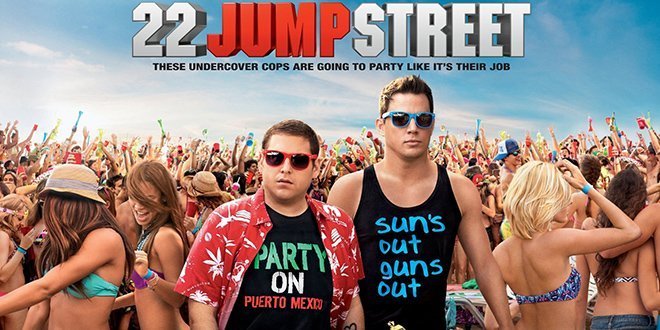One of the key things I enjoyed about 21 Jump Street was watching Channing Tatum and Jonah Hill being thrust into situations that allowed them to play completely against type, and much of the film’s humor was derived from this idea. The success of the first film ensures that audiences will know what to expect, and 22 Jump Street deftly avoids repeating itself by repeatedly changing gears in an effort to keep the audience guessing.
After flubbing a major bust, Schmidt (Hill) and Jenko (Tatum) find themselves sent back to the undercover division and tasked with infiltrating a drug ring that led to the death of a prominent local student. Jenko quickly assimilates into the faux college existence, walking onto the football team and rushing the hottest fraternity on campus, while Schmidt struggles to find his footing before making an unexpected ally in art major Maya (Amber Stevens).
Some of the best laughs come from the film’s self-aware attitude, repeatedly poking fun at sequel tropes before unfortunately falling victim to them. The same “bromantic comedy” formula that worked so well in the first film is still effective here, but no longer feels as fresh or as clever. Likewise, Hill and Tatum retain their fantastic comedic chemistry, and they still know how to make us laugh until it hurts, but something about 22 Jump Street never quite falls into place.
Much like a Michael Bay sequel, this film is bigger, louder, and more expensive than its predecessor, yet seems to have lost sight of some of the smaller details that made the original so enjoyable. 22 Jump Street is certainly not a bad film – indeed, it’s easily the best comedy in theaters right now – but it still doesn’t work nearly as well as it should.



